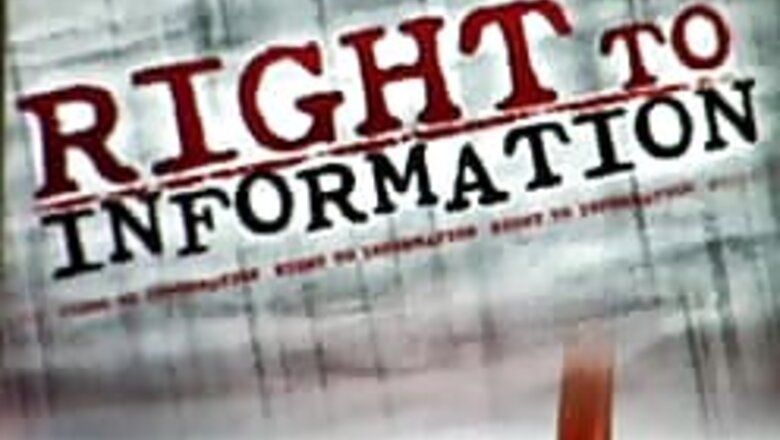
views
New Delhi: The Central Information Commission has ruled that candidates appearing in the Union Public Service Commission (UPSC) examinations have the right to know the procedure and the technique followed in determining the cut-off marks to draw the line between successful candidates and others.
Candidates should also be told about the composition of the interview board and the total marks scored by them in written papers as well as interviews.
The decision was given on the application of one Rajnish Singh Chaudhary of Jalandhar, who appeared in the examination for recruitment of Assistant Provident Fund Commissioner in EPFO, Ministry of Labour, conducted by the UPSC in 2002-03.
Chaudhary had, among other information, sought the cut-off marks for those selected under General and OBC category respectively and the names of the Chairman and members of the interview board.
''The action relating to determination and application of cut-off marks, being an extremely critical factor in life and career of a person, should fall under public domain, '' the CIC stated.
It added that in almost every competitive examination, a significant number of aspirants are found to be equally bright and competent for the specific jobs. Yet, certain criterion or formulae is to be applied for short-listing candidates from different social categories, as per the reservation policy and the availability of vacant positions in each category.
''Accordingly, a cut-off point is determined and applied to effectively implement the reservation policy. This is done by every recruiting agency and the UPSC is no exception. In the instant case, the information sought should therefore be furnished,'' it said.
The CIC said the process of recruitment of staff for various types and levels of jobs was closely related to right to work, so the conduct of examinations and interviews has to be therefore duly transparent.
So, every public authority should adhere to the principle of maximum disclosure and provide a reasonable explanation, under Section 4(1)(d) of the Act, for every action taken by them.
On the candidate's demand for disclosure of the names of the chairman and members of the interview boars, the CIC said it was not understandable as to why the composition of the Committee should not be made public, after the selection process was over.
''In order to ensure that the persons of high caliber and integrity are duly associated with the process of selection of candidates for employment and promotion, the composition of such Boards/Committees should be made public, after the entire process of selection is over, '' said the CIC in the decision given on September 1.
The UPSC had argued that disclosure will affect the integrity of the entire Recruitment Process.
The names and designation of the Board who conducted the interview are not shared even with the indenting Ministry/Department, it said.
The advisors and experts are also advised to keep the fact of association with the Commission as confidential, the UPSC had said.
However, rejecting all these arguments, the CIC directed the the CPIO to furnish the information sought within 15 working days from the date of issue of this decision.''


















Comments
0 comment